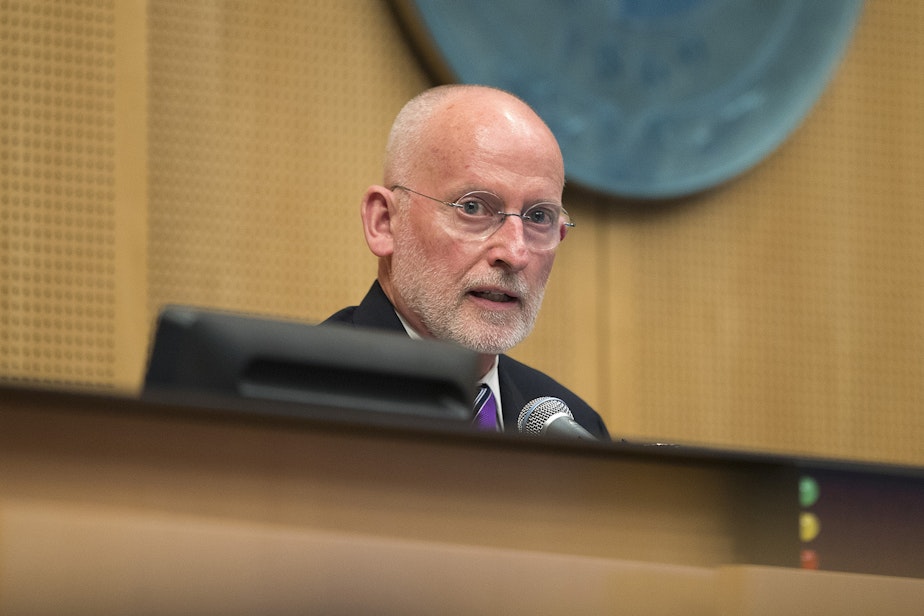‘Head tax’ to fight homelessness opposed by Seattle mayor

Seattle mayor Tim Burgess is speaking out against a proposed business tax that would raise extra funds to combat homelessness.
City council members are considering including the tax, known as an ‘employee hours tax’ or a ‘head tax’, in the 2018 budget.
But Burgess said this week that would be a mistake.
"It's ill-advised because Seattle already has the highest business tax rate of any municipality in the state of Washington... and I would contend that business is already paying a fair share," Burgess said. "They pay the business and occupation tax, they pay the property tax, they pay the sales tax when they purchase items for their business. So I just think it's ill-advised to tax the creation of jobs."
The tax, proposed by council members Kirsten Harris-Talley and Mike O’Brien, would affect an estimated 10 percent of Seattle businesses.
Sponsored
It would apply to businesses with more than $5 million in annual gross revenue. They’d pay about $100 per year, per full time employee.
Burgess said he’s spoken with businesses who argue they can’t afford the tax.
He said a head tax is the wrong approach.
“It sends the wrong signal to the business community.”
Burgess’ dislike for this kind of tax isn't new. In 2007, he ran for city council on a platform of repealing a head tax that raised money for transportation improvements.
Sponsored
In 2009, he introduced the legislation that fulfilled his campaign promise.
But council member Kirsten Harris-said she's surprised by Burgess' continued resistance to a head tax.
"We were quite frankly in a really different economic situation a decade ago than we're in right now. We have no shortage of jobs, we have no shortage of job growth."
Harris-Talley said the tax is needed to assist the city's most vulnerable people. It’s been two years since a state of emergency was declared over the issue of homelessness and the problem continues to grow.
Harris-Talley said the affected businesses can afford to pay the tax to help those who have not profited from the city’s economic boom.
Sponsored
“I applaud those businesses that have come to our region and had such a huge amount of success,” Harris-Talley said. “What we’re asking is for a really minimal increase on what’s being paid to contribute to a problem that’s impacting quite frankly their business bottom line, the needs of our houseless neighbors, and our everyday interactions with folks on the street.”
Money raised through the tax would fund more housing options and services for the homeless, Harris-Talley said. And she said the extra revenue is sorely needed.
When asked if Burgess agrees more funds are needed to address the homelessness crisis, his answer was non-committal.
“I’m not sure. I think we need to ask that question. Are the dollars we’re spending today being invested wisely and effectively? And the reality is, I can’t answer that question.”
If the council wants to allocate more resources to fight homelessness, Burgess is offering an alternative revenue source.
Sponsored
He's calling on the council to pass a different bill that would place new fees on short-term rentals, like those listed on the site Airbnb.
Harris-Talley is not a fan of Burgess’ suggestion. She said a tax on short-term rentals would not bring in nearly as much revenue as a head tax.
If the head tax does make it into the 2018 budget, Burgess said he's unsure whether he'll veto the plan.
The council is expected to finalize the budget later this month.
